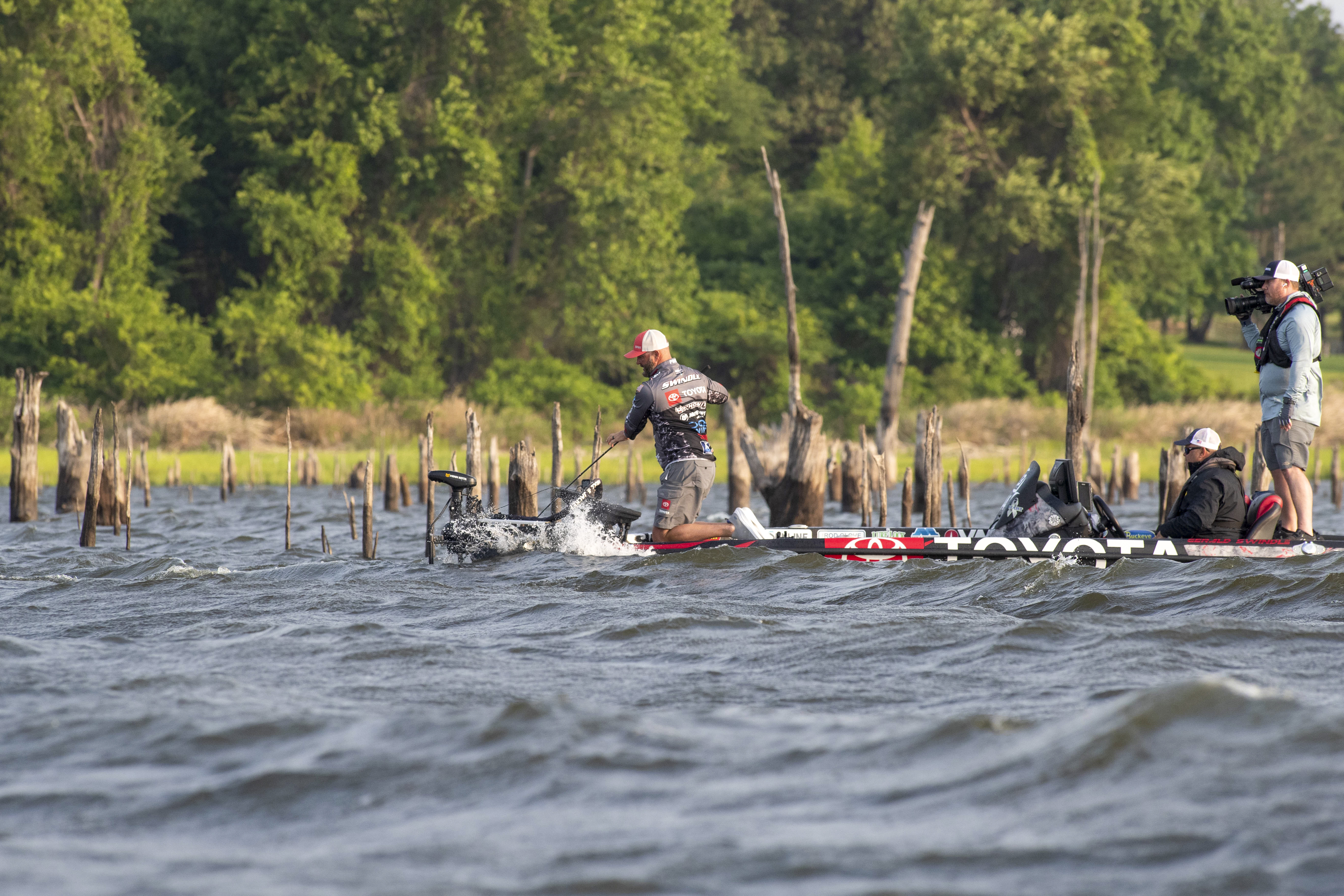
The life of a professional fisherman isn’t all rainbows and kitty cats. Here are the worst parts of the job, and why they are so important.
What’s there to not love about bass fishing?
You’re on the water away from the workplace, the air is fresh and catching a big ’un on any cast is always a possibility.
Absolutely nothing can get in the way of having a good time.
Right?
Well, that depends. There are those not-so-fun fishing-related annoyances that we don’t like to do and frequently avoid.
Oftentimes, nothing happens. Eventually, though, nasty gremlins will remind you of the laziness at an inopportune time.
It happens to Bassmaster Elite Series pros, as well. They readily admit there are things they consider to be a pain in the butt that are necessary to being proficient and avoiding that uh-oh moment.
“There are so many variables in the sport that we can’t control, but you have to utilize those you can control,” says 2022 Bassmaster Classic champion Jason Christie. “We’ve all been guilty of blowing off something only to have it come back and bite us.”
Here are some of those “pains” that several pros admitted and how it affected them negatively.
Chris Johnston: Those $%&# FG knots!
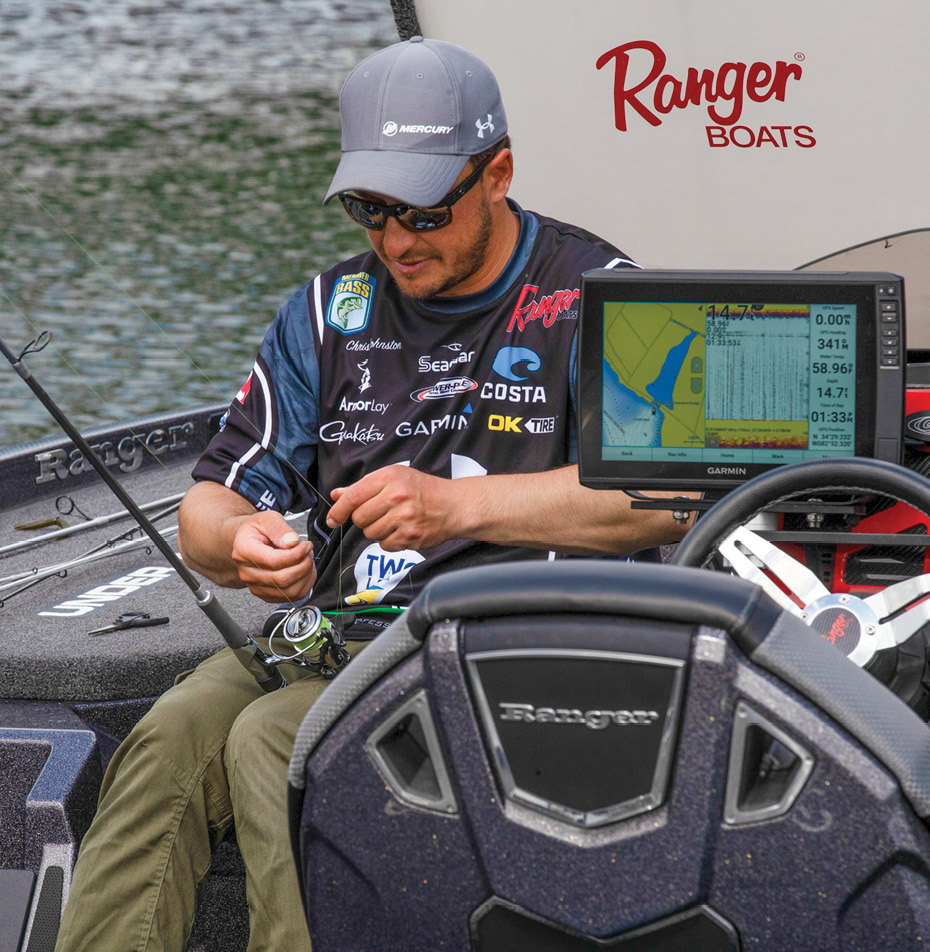
When the Elites make their Northern swing into big smallmouth waters, a specialty for the Canadian Chris Johnston, special preparations are required.
“That means 10 spinning rods on the deck — and tying 10 FG knots,” says Johnston. “And man, that takes a lot of time and patience.”
Anyone who has tried tying the knot while connecting braid to a fluorocarbon leader certainly understands. Johnston says it takes him about three or four minutes, likely quicker than the average angler.
“It’s time consuming, but it is crucial to having a good knot that’s small enough to slide through the guides,” he explains. “You can’t rush it, and it’s tough tying in the dark. You have to take your time or it will cost you money.”
And that’s happened to him.
“I’ve done it wrong [unknowingly] and lost key fish because the knot pulled apart,” he says. “Now I do [my] due diligence and test it to make sure I have it right so it doesn’t cost me again.”
Gerald Swindle: Never-ending boat maintenance
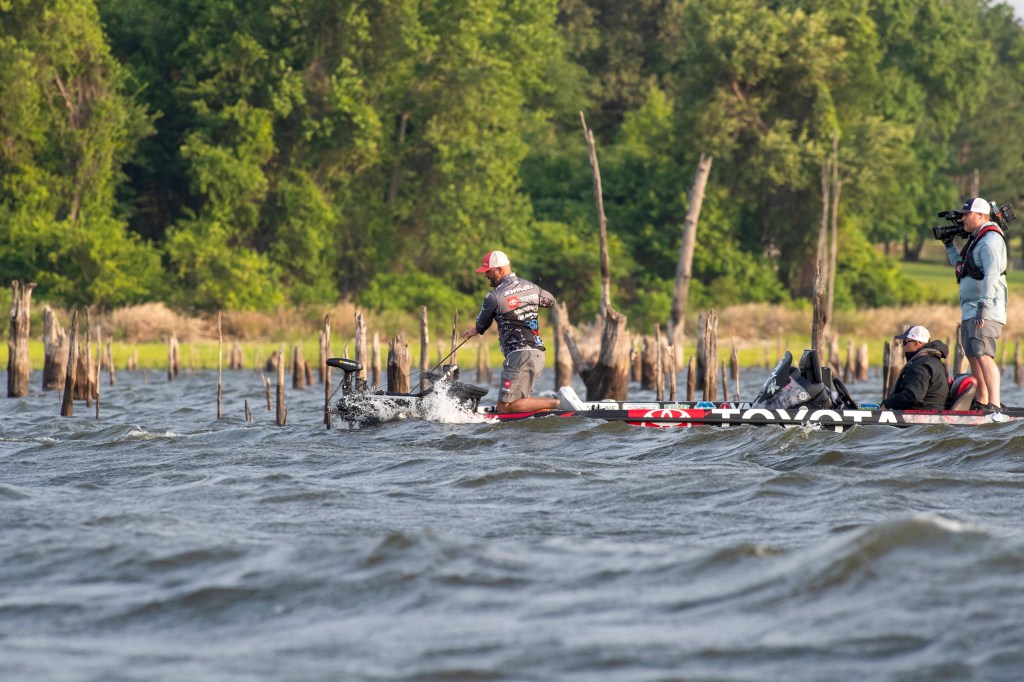
Most people like to go home after a tournament, park the boat and chill out.
Swindle makes his boat his first priority.
“When I get home, I go through everything — tighten bolts, change lower-unit fluid, check all connections to make sure they’re tight — from bow to stern,” he says.
It takes a full day, he adds, but it is important for peace of mind. If there is any doubt about an accessory, he fixes it or replaces it.
But sometimes it’s easy to let something slide.
“I hit a large log with my Humminbird Side Imaging Transducer at Santee Cooper one year,” he recalls. “I was afraid it was damaged, but when I checked for cracks, chips or a bent wire, it seemed fine. And the graph read everything, but something still didn’t seem right.”
Swindle considered changing the transducer but didn’t want to take a half-day to remove the old one and restring the wiring through the boat.
“It’s such a pain in the butt,” he says.
So, at the next tournament, he was idling through areas, watching the graph, and would see a fish here and there, but not the quantity he felt he needed.
“When I drove by those areas during the tournament, I saw guys sitting on every one of those areas, and a guy who finished in the Top 10 caught his there,” he says. “I went home, changed out the transducer, and man, what a difference it made in what I was seeing. The old one was working just enough to fool me but not to perfection.”
Drew Cook: Changing those dang hooks
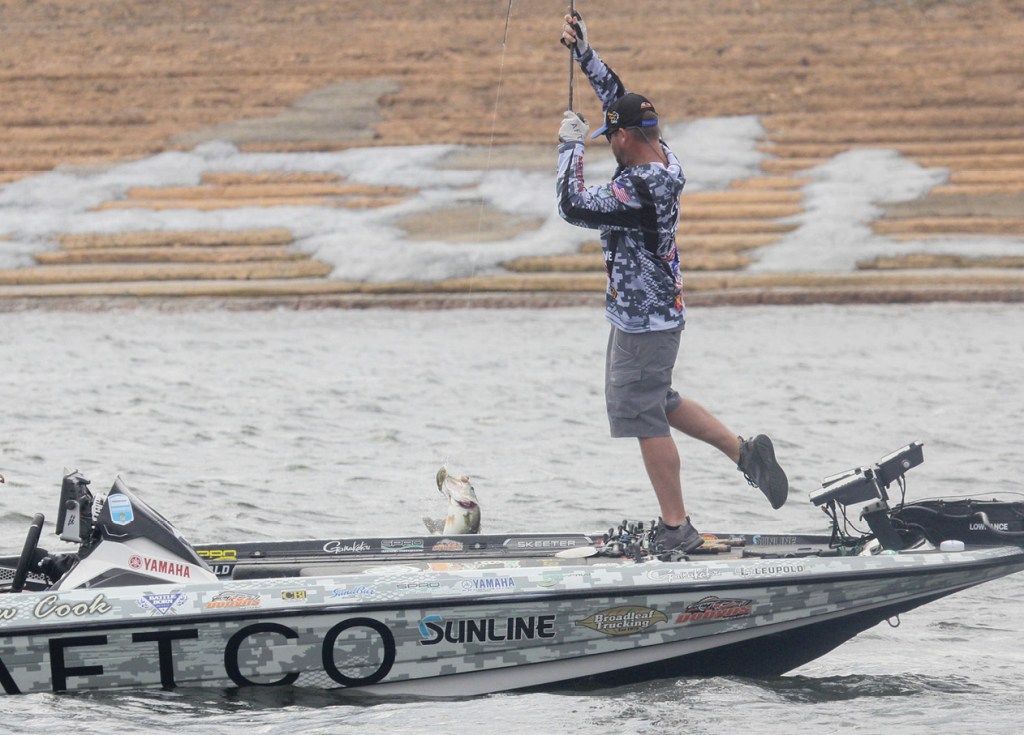
Cook hates to take the time to do anything but fish during a tournament, and changing treble hooks is one of those pains he has learned to deal with, regardless of the situation.
While fishing the St. Lawrence River in 2020, he caught a small smallmouth and swung it into the boat. When the fish hit the floor, the hooks caught in the carpet and the fish went crazy, as they often do.
“When I popped it out of the carpet, I could tell one of the hooks was bent and should have changed it but I didn’t,” Cook recalls. “Three casts later, I hooked a 4-pounder and it came off.”
It’s not just the bent hooks that need to be changed, he adds. The front treble on a squarebill takes a beating when cranking through rocks throughout the day.
“I use premium hooks that are ultra-sharp, but those fine points will wear down over time,” Cook insists. “You have to take time during the day to swap out the hooks.” He learned that on the Tennessee River a few years ago.
“I was catching fish and didn’t take the time to change out that front hook that gets most of the abuse when deflecting off rocks,” says Cook. “I lost a big one on Day 2 of the tournament because I didn’t change.”
Not anymore. He says he will change hooks as many as four times a day when his crankbait is constantly banging on hard cover, which is what he wants that bait doing.
For that reason, the Georgia pro carries a box full of various sizes of treble hooks in his boat — but no split-ring pliers that most anglers use to make a quick change.
“I got tired of hunting all over the boat for the pliers, so now I trim my thumbnail down so that one corner is longer and that’s what I use to open up the split rings,” he says.
John Crews: Focus, baby, focus
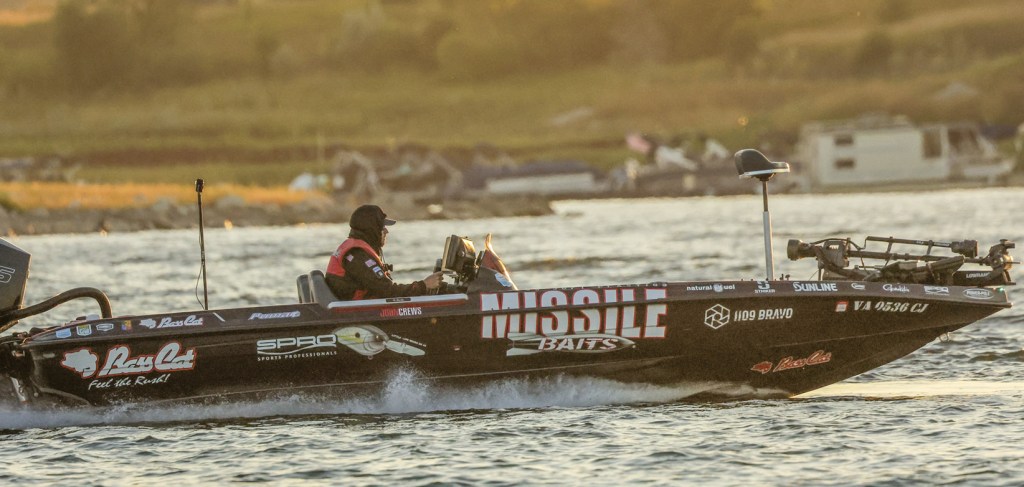
When the pros have three days of practice, it’s easy to lose focus, go through the motions and take the easy way out, says Elite pro John Crews.
He’s learned that you have to use practice as efficiently as possible, cover water productively and try all depth ranges, techniques and patterns that could be effective.
“If you go up and catch a few 3-pounders flipping bushes, it’s easy to decide to run around fishing bushes if you think that’s the deal,” he says. “But what if it’s not the only deal, or the water drops and the fish leave those bushes when competition begins?”
Crews says there may be 4- and 5-pounders out deeper on a secondary point. It’s worth checking it out, as well as other areas and patterns in the area.
“It’s really hard to keep your brain engaged the entire practice day and not go through the motions,” he says. “It’s also easy to end your day early, thinking you have something figured out, yet those last few hours of daylight may produce something even better.”
That happened to him at the St. Lawrence River one year. He got a lot of bites and could have called it a day but stayed on the water looking for new areas until dark.
“It was 9:02 p.m. and I caught a fish shallow on a bladed jig and started running new water in that area and got a lot of bites,” he says. “That proved to be my best area in the tournament and one I wouldn’t have seen if I hadn’t fished late into the evening.”
Clifford Pirch: What time is it?
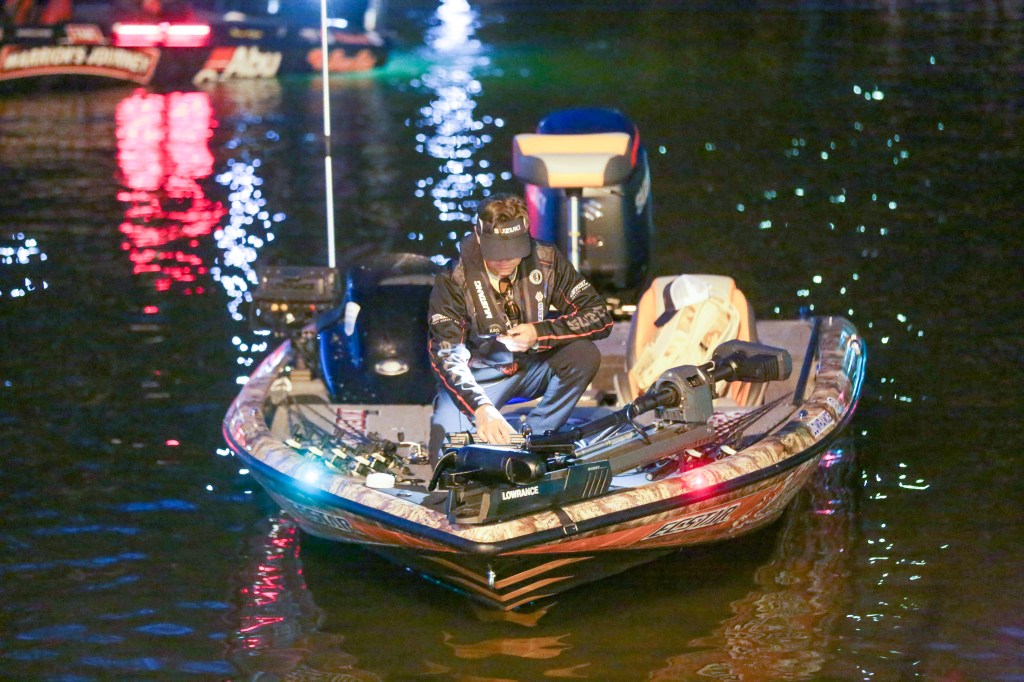
Something that drives Clifford Pirch crazy is managing the time. When you’re a Western angler fishing out East, those time zones can mess you up.
“Managing time zones is something most guys don’t think about,” he says. “There’s a two- to three-hour difference in where I live and where we fish most of the time.”
First, there’s the body clock adjustment. When most people climb out of bed at 5 a.m., his body thinks it’s 2 a.m. That’s not easy.
And then there’s the matter of watching the time during tournaments. It can get confusing.
During one tournament, Pirch looked at his phone to check the time. What he didn’t know was that his phone inexplicably was operating in the wrong time zone. He thought he had plenty of time, but unfortunately, he learned differently when it was too late.
He was late for the weigh-in.
“That’s a mistake you only make once,” he says. “Now I check my phone, check the time on my electronics and have my marshal check his phone. It seems like a small thing, but one of those that you have to do or find yourself with a penalty for being late.”
Kyle Welcher: Procrastination is costly
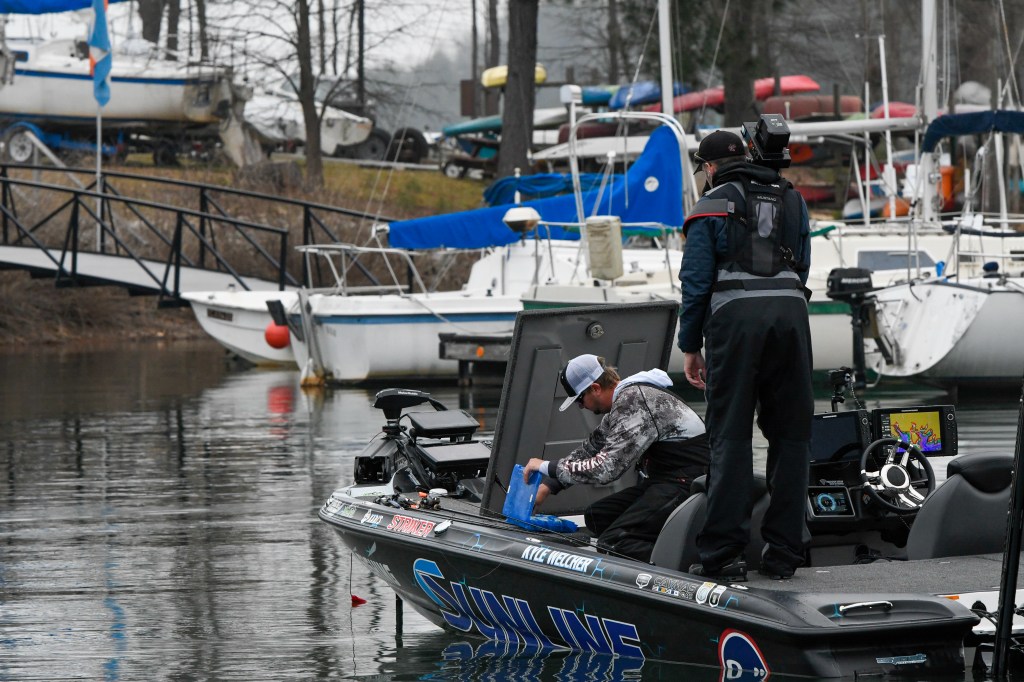
Welcher admits there are things he’s avoided simply because he doesn’t like to do them.
Off-season preparation is one of those. Failing to take extra time to organize the boat and make sure the proper gear is loaded systematically has haunted him in the past.
“I’ve had everything out of order, couldn’t find the baits I needed and had to buy more because I couldn’t find them,” Welcher says.
A similar case happened to him last year at Lake Oahe. He put together a large bag with $500 worth of soft plastics while at home.
When he got to the lake, he couldn’t find them. He had assumed they were in his truck.
“I spent a lot of time searching through the boat and truck,” he says. “It took me about 24 hours to drive up there, but I didn’t take the few minutes it would have taken when I was home to make sure they were in the vehicle.”
Jason Christie: Staring down fatigue
Christie says getting tackle ready for competition after a long practice day is tough.
“Especially when you’ve had a mediocre practice,” he notes. “You just want to eat and go to bed.”
And sometimes, he says, it’s tempting to cut corners while working on tackle for the next day.
That’s a no-no, says Christie, who remembers doing so cost him a win at a Bassmaster Open a few years ago.
“I was respooling fresh line and knew I was going to flip most of the tournament, but I needed 25-pound line,” he says. “Rather than run 2 miles down to the tackle shop and buy it, I put on some really old line that I use for backing on my reels and used that instead.”
The first bite he got the next morning was a 5-pounder that broke off.
“If I boat that fish, I win,” says Christie. “It was an expensive lesson, but I’ll not make that mistake again.”
Wes Logan: Road warrior nuisance
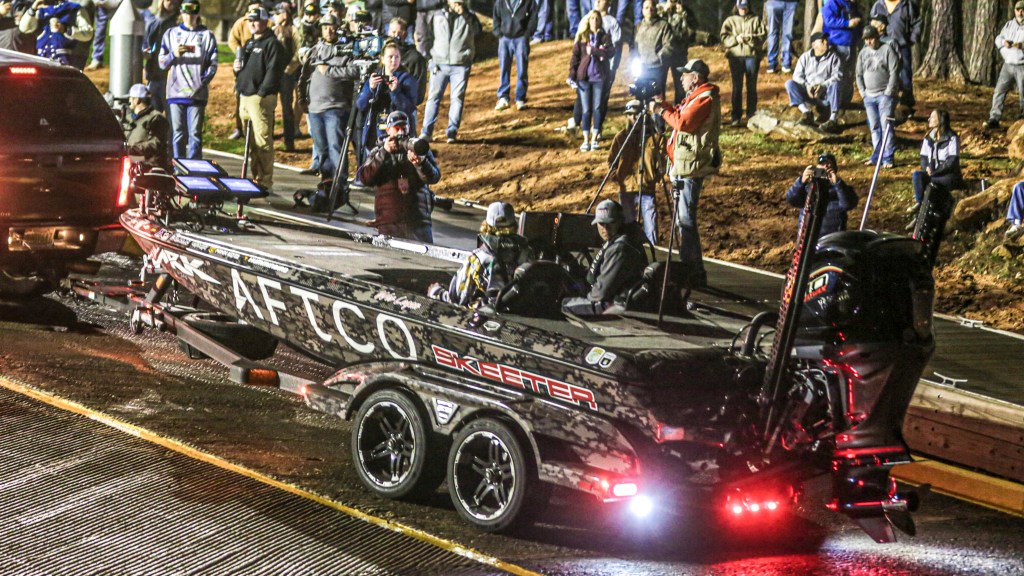
When the affable Alabamian was a rookie and traveling a lot, Wes Logan didn’t give his boat trailer a second thought.
Today, it’s on his mind a lot — and not because he likes trailer maintenance.
“I never checked the grease in my bearings — until I spent a long time on the roadside because my bearings went out,” he recalls. “And it really sucks when you don’t have a spare set of bearings, all because I hadn’t done preventative maintenance.”
Today he monitors his bearings and wheels regularly. He also checks his brake fluid, brakes, rotors, discs and tires for wear. He even rotates his tires at midseason.
“I now have a Skeeter, which has the best trailer I’ve ever had,” Logan says. “But when you spend time on the road, stuff can happen. You can hit something on the road and break a brake line; electrical wires can get cut or even chewed up by varmints.”
He says trailer maintenance can be a pain and is easy to neglect but critical to do even when there isn’t much time to do it.
“I’ve had situations where I thought I checked everything beforehand, but when I walk around the boat the day before I leave on a trip, I see something wrong and have to spend my time fixing it when I should be working on tackle,” he says





